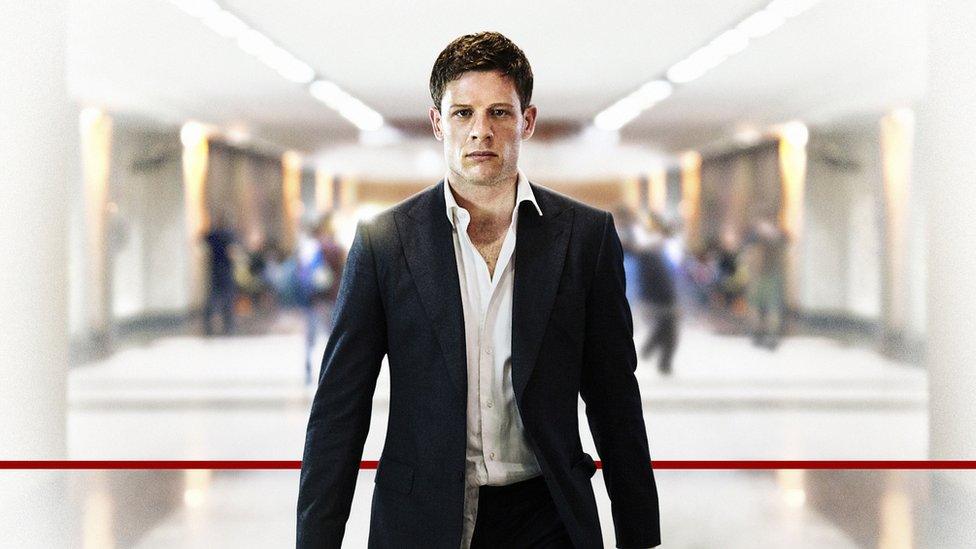James Norton: Why making Nowhere Special made me sob and want children
- Published

James Norton plays John, the devoted father of four-year-old Michael [Daniel Lamont]
James Norton is clearly emotional about his latest film, Nowhere Special.
This is not entirely surprising, given he plays a terminally ill single parent, choosing a family to adopt his young son.
"It made me cry when I read the script," he tells the BBC.
Norton found it hard to hold back his tears during filming as well - he was "sobbing my eyes out" during a poignant bedtime story scene.
They had to keep reshooting until he could do it dry-eyed, to show his character's "strength and stoicism".

Norton had to fight back tears during some scenes of the film
It appears he wasn't the only one to be so affected by the storyline. Virgin Radio's Chris Evans said his wife found him "sobbing for 10 minutes", external after watching it, and called it "the most beautiful film I've ever seen".
Norton, who has starred in TV dramas including Happy Valley, McMafia and Grantchester, and is regularly touted as the next James Bond, external, plays John, a window cleaner from Northern Ireland.
John, who has an unspecified illness, has just months to live. He is completely alone, apart from his four-year-old son Michael.
The film sees him go through the agonising process of meeting prospective families for Michael, for when he is gone.
Director, writer and producer Uberto Pasolini, who produced 1997's The Full Monty, external and directed 2013's Still Life, external, says his film is really a "love story" about their father-son relationship.
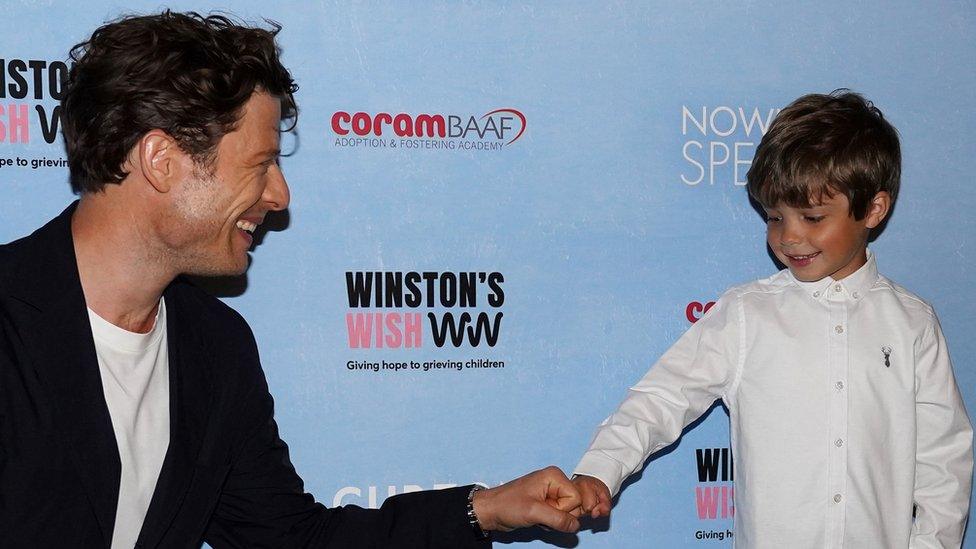
James Norton speaks highly of working with co-star Daniel Lamont and says they are still in touch
He based it on a newspaper article he came across, about a single father who spent his final months finding a foster family for his young son, before he died of cancer.
The director tried to contact the man's family via social workers, but didn't get any extra information due to privacy issues. So he created his own story about John and Michael.
Pasolini, a father of three daughters, explains: "I was very moved by reading this article - all of a sudden this man had to abandon his child and somehow find the replacement.
"I could not imagine what it means to be confronted by that situation and how you handle it, especially when your child is so young. And it made me think - what makes a good parent, what makes a good family?"
With such a close bond at the heart of the film, it was vital for Norton to get to know his young co-star, Daniel Lamont.
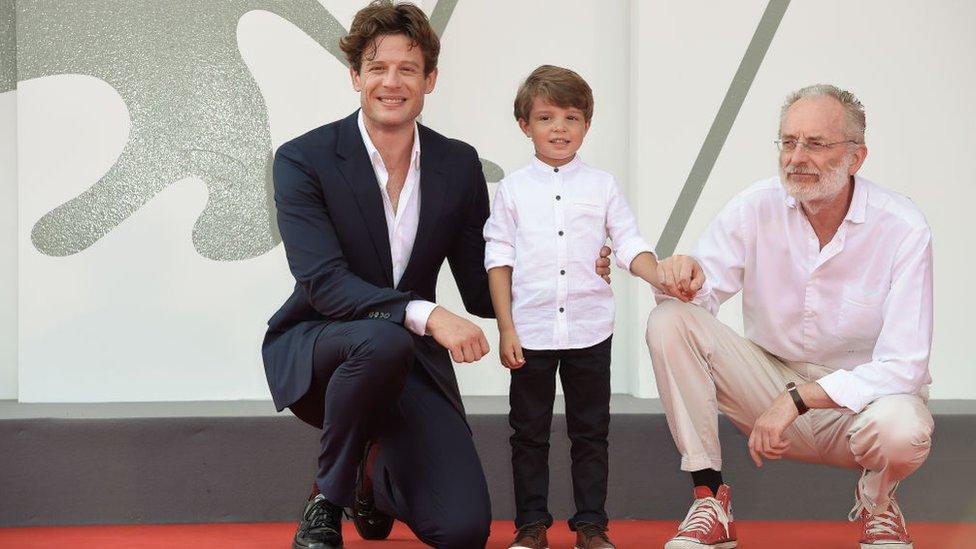
Norton, Lamont and Uberto Pasolini were on the red carpet at the 2020 Venice Film Festival
"The most important piece of preparation was finding the relationship with Daniel, and making sure there was a true affection, so weirdly it was a lot of just playing and having fun, and gaining trust from him," Norton explains.
"We got on really well. It was just making sure he really wanted to come to work, and that the love we wanted to capture on film was real."
But an unexpected side effect of this experience was that it made him reassess his own life.
"It definitely made me broody," he smiles. "I'm 35, I'm in a long-term relationship, my sister has two boys who are under three - the film really made me think about having children."

It also made him think about his own mortality.
"Being forced to contemplate one's death in a very simple way is something I think we run away from most of the time, rather than sit down and meditate on what's going to happen when you die. It was really cathartic for me to share a little bit of John's journey."
He recalls Pasolini handing him a small black rock to put in his pocket during filming, to "represent death".
"He told me, 'While this film is not about death - I want it to be about life and love and family, and cherishing moments we have with our loved ones - I also want death to permeate every scene. So if your hand's in your pocket or you just feel the weight of the rock, just remember that for this character, death is everywhere.'"

Even happy occasions are tinged with sadness in the film
Much of the film is very understated. Feelings are expressed by looks or small exchanges in moments of domesticity, rather than big, emotional scenes.
Pasolini chose Norton because he wanted an actor who could convey a lot while doing little.
"James is capable of that, he's technically amazing," he says. "When I said to James, I want to approach this with quietness, he understood that immediately, and it gave us what you see - feelings without performance - which is hard."
But he also chose Norton because of his appearance.
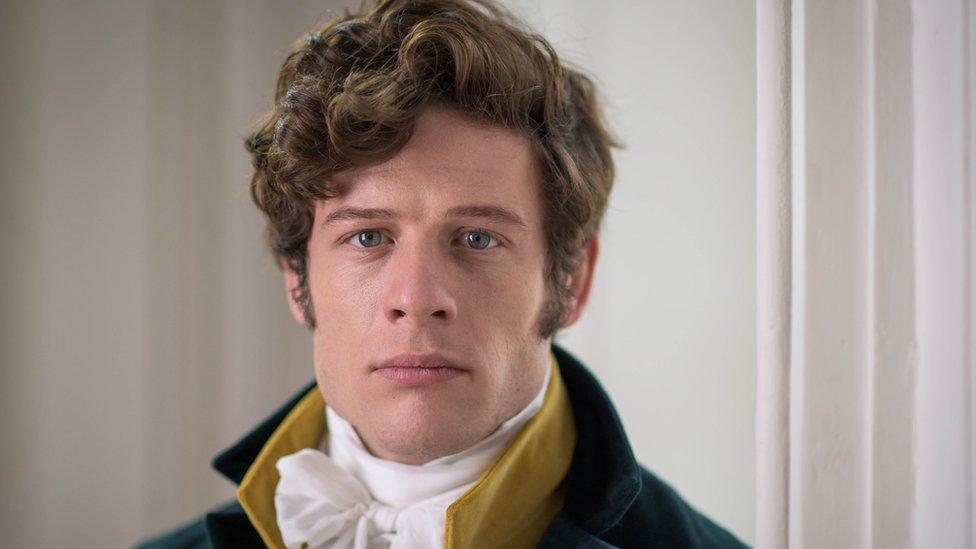
Norton had a lead role in the BBC's 2016 version of War and Peace
The director wanted to explore the idea of "seeing somebody who is physically not just handsome but strong, and the contrast between the situation and his physicality".
He adds: "Obviously a man of his appearance would be surrounded by women, but this man has dedicated the last four years of his life entirely to bringing up a child, and that is a love story."
Screen Daily's Fionnuala Halligan wrote, external about Nowhere Special at Venice Film Festival, saying: "When we demand that cinema opens up to under-represented voices, John is one of them: white, poor, uneducated, alone, and with a troubled past.
"It's perhaps odd on paper that he would be played by an actor like Norton, but it's also hard, having seen it, to imagine who would do a better job."
Norton, who has previously spoken out against TV producers stereotyping "posh" actors, external, says he is "nervous of being pigeon-holed" in his roles.
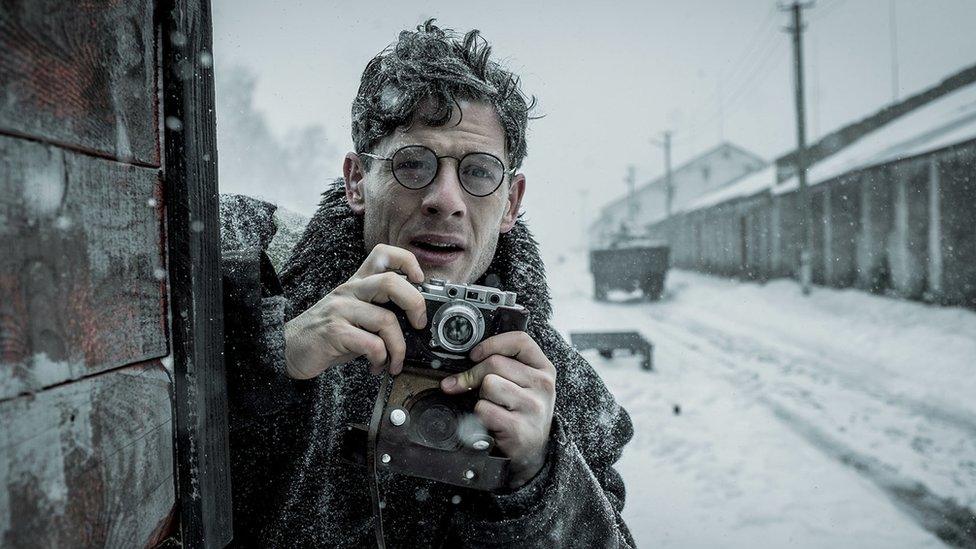
Norton starred in 2019 thriller Mr Jones based on the true story of a journalist reporting on the 1930s Soviet Union famine
"Everything which comes along [in my career] is new and fresh and scary - I try to make sure that it is - I don't want to be too comfortable," he says.
He admits it's "flattering" to be considered as a possible James Bond, and says he's now more comfortable appearing in the press than he used to be.
"As I got a bit older and more confident, I realised I don't have to give away everything, I don't have to Instagram my life and talk about my relationship.
"But I can talk about things like being a diabetic, or having a hard time at school, and hoping that those moments of honesty will chime with people who are also diabetic, or who might have also been bullied in school."
He adds the "cost of fame isn't huge for me" apart from the occasional selfie in a restaurant, which can be "a bit annoying".
The "most gratifying thing" about having a profile, he says, is when parents of young diabetics message him to say hearing him speak about his experiences has made their children "feel so much better".

John grows visibly weaker throughout the film
The actor read a lot about adoption, fostering and bereavement for the role, while Pasolini worked closely with charities and organisations, to understand the processes in place.
The director was most keen to grasp "the emotions involved", taking advice from the CoramBAAF Adoption and Fostering Academy.
Their policy director Dr John Simmonds tells the BBC: "The film creates a powerful insight into a child's experience of these issues, and that is absolutely key to the film's messages. Imagining what is going on in the mind of the child is really significant."
Dr Simmonds adds that although research evidence is positive for adopted and fostered children, outcomes were "hugely dependent on the commitment, sensitivity, determination and flexibility of the new carer/s, and the availability of support services if the going gets tough".
Coping with loss: Advice from Child Bereavement UK
Child bereavement charity Winston's Wish also worked with Pasolini, and a spokesperson explains: "It is really hard to prepare a child for the death of a parent when they are not old enough to be aware of what death means; but the film uses pitch perfect examples to start to build a picture for Michael."
They also praise the film's depiction of the "terrible tug-of-war inside John, of wanting to protect Michael against what is happening and wanting to prepare him", along with its handling of "the importance of memories".
Norton simply adds that the point of the film is to "make sure you cherish the moments with the people you love - we just want people to call up or reach over to whoever they're with, and give them a hug".
Nowhere Special, external is in UK cinemas on 16 July and is streaming from 6 August.
Related topics
- Published2 December 2020
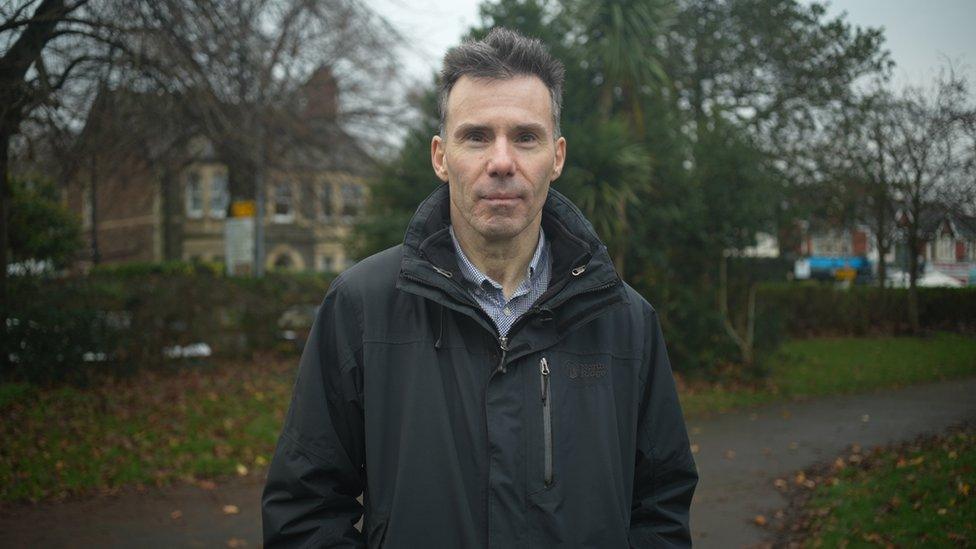
- Published20 September 2020
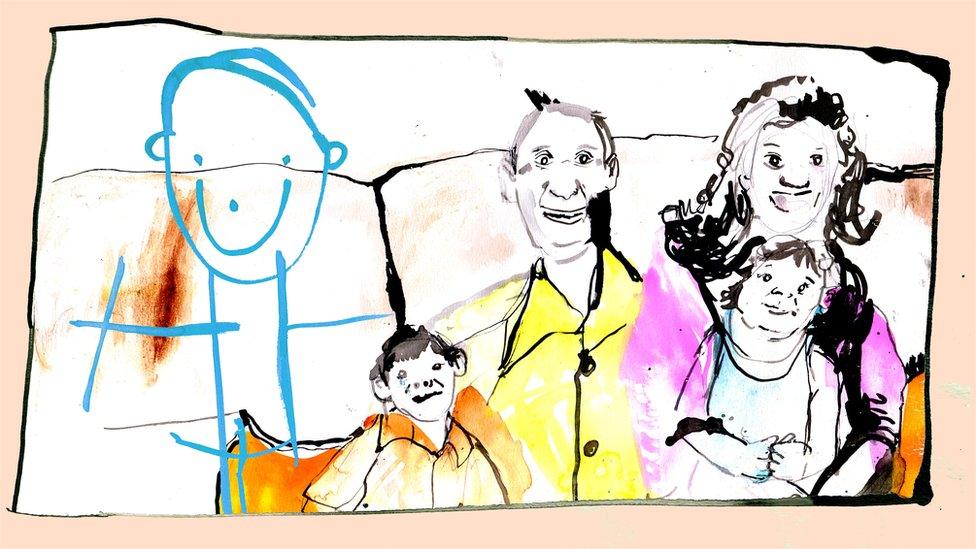
- Published21 December 2017
